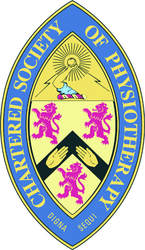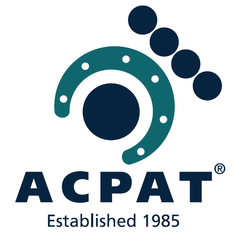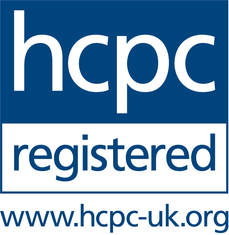Canine Physiotherapy
Dogs respond incredibly well to physiotherapy treatment!
Problems we treat:
Problems we treat:
- Hip/Elbow Dysplasia
- Post-surgical rehabilitation – e.g. TPLO, TTA, Arthroscopy, Hemilaminectomy
- Spinal injuries/Neurological conditions – IVDD, paralysis, nerve palsy, weakness, muscular atrophy
- Age related problems – Osteoarthritis, muscular weakness/atrophy, limb weakness and lameness, joint pain
- Soft tissue injuries – tendon, ligament strains, muscular strains/injuries, lacerations and wounds, surgical wounds and scar tissue
- Rehabilitation/improving athletic performance
How can physiotherapy help my dog?
Physiotherapy aims to find and treat areas of pain, weakness and/or restrictions that may be affecting your dog's health and performance.
During the assessment we will take a full history of the animal, the issues, then complete a thorough examination. We will watch the dog move, and then feel for any areas of pain, asymmetry, tightness, weakness and restrictions.
We will then set goals together and make a plan on how to achieve them. The plan may (and often does!) change as the rehabilitation journey progresses.
We may use many different physio techniques to help any problems identified. Please see Treatment Techniques section below for more information on these.
During the assessment we will take a full history of the animal, the issues, then complete a thorough examination. We will watch the dog move, and then feel for any areas of pain, asymmetry, tightness, weakness and restrictions.
We will then set goals together and make a plan on how to achieve them. The plan may (and often does!) change as the rehabilitation journey progresses.
We may use many different physio techniques to help any problems identified. Please see Treatment Techniques section below for more information on these.
Do I need to do anything before the appointment?
It is always useful that the dog is clean and dry as a wet and dirty dog makes it much more difficult to palpate (as well as messy!) and may skew the findings of the palpatory assessment.
You may have some of the dog's favourite treats to help distract them and keep them engaged in the session and a well-fitting collar/harness and lead.
You may have some of the dog's favourite treats to help distract them and keep them engaged in the session and a well-fitting collar/harness and lead.
How many visits will be required?
The number of sessions requires will depend on the findings of the examination and issues identified.
Some dog only require maintenance sessions, we usually recommend once or twice per year (depending on the animal e.g. and agility dog may benefit from more regular treatment than your average pet dog).
However, if more severe pain, chronic conditions, or they are in rehabilitation following surgery or injury, for example, the dog may benefit from more intensive input.
The frequency is always discussed as part of your ongoing plan.
Some dog only require maintenance sessions, we usually recommend once or twice per year (depending on the animal e.g. and agility dog may benefit from more regular treatment than your average pet dog).
However, if more severe pain, chronic conditions, or they are in rehabilitation following surgery or injury, for example, the dog may benefit from more intensive input.
The frequency is always discussed as part of your ongoing plan.
Veterinary consent
In line with the Veterinary Surgeons Act 1966, all animal therapists (physios, osteopaths, chiropractors, massage therapists etc) need to obtain consent prior to the treatment of an animal from your Vet.
This is usual practice and we will liaise with your Vet to arrange this.
This is usual practice and we will liaise with your Vet to arrange this.
Is there any aftercare following treatment?
This will depend on the nature of the treatment given to the animal. The animal may be a little fatigued for 24 hours or there may be some post-treatment soreness. This may require a few days of rest and/or light exercise before resuming full and normal exercise.
If you have a competitive dog, please bear this in mind if you have a specific competition you would like to attend. I would always recommend a minimum of 3 days between physiotherapy treatment and any competitive demands you may wish to place on the dog.
If you have a competitive dog, please bear this in mind if you have a specific competition you would like to attend. I would always recommend a minimum of 3 days between physiotherapy treatment and any competitive demands you may wish to place on the dog.
Will there be anything for me to do following the appointment?
Along with following the aftercare advice, you may be given a home exercise programme, which may consist of a range of different exercises/stretches to complete in between sessions, this will be targeted to improve the specific issues identified during the assessment.
We are all about training you how to help your dog’s recovery!
We may also recommend the use of other conservative treatments such as cold/heat therapy, owner massage etc. for symptom management.
We are all about training you how to help your dog’s recovery!
We may also recommend the use of other conservative treatments such as cold/heat therapy, owner massage etc. for symptom management.
What if a problem is identified?
Should the assessment process lead us to believe there is something undiagnosed going on with your dog we will always refer you back to your Vet.
Physiotherapists are not permitted to diagnose pathology in veterinary work (in contrast to human practice) and this remains the responsibility of your Veterinary Surgeon.
We are strong believers that treating the symptoms, when there is an underlying/unaddressed issue, is not ethical for you, your dog, or us as Chartered Physiotherapists.
We pride ourselves on being honest of our Scope of Practice and if we feel the presenting issue is not a physiotherapy issue we do not believe in repeatedly coming to treat the symptoms if another professional is the appropriate person to refer to. We regularly recommend addressing any underlying causes of pain/lameness, and then, once diagnosed/treated, provide physiotherapy input to rehabilitate and address any residual muscular soreness/movement asymmetries.
Physiotherapists are not permitted to diagnose pathology in veterinary work (in contrast to human practice) and this remains the responsibility of your Veterinary Surgeon.
We are strong believers that treating the symptoms, when there is an underlying/unaddressed issue, is not ethical for you, your dog, or us as Chartered Physiotherapists.
We pride ourselves on being honest of our Scope of Practice and if we feel the presenting issue is not a physiotherapy issue we do not believe in repeatedly coming to treat the symptoms if another professional is the appropriate person to refer to. We regularly recommend addressing any underlying causes of pain/lameness, and then, once diagnosed/treated, provide physiotherapy input to rehabilitate and address any residual muscular soreness/movement asymmetries.
Canine Physiotherapy:
£60
- Home visit
NB: All physiotherapy treatments may include combinations of manual therapy (joint mobilisations, soft tissue techniques such as sports massage, myofascial release, trigger point therapy, soft tissue release, MET techniques), electrotherapy, Kinesio taping, Medical Acupuncture (human only) and exercise rehabilitation/home exercise programmes and the provision of resistance bands. There are no additional hidden charges, any treatment utilised during your session is included in the price.






